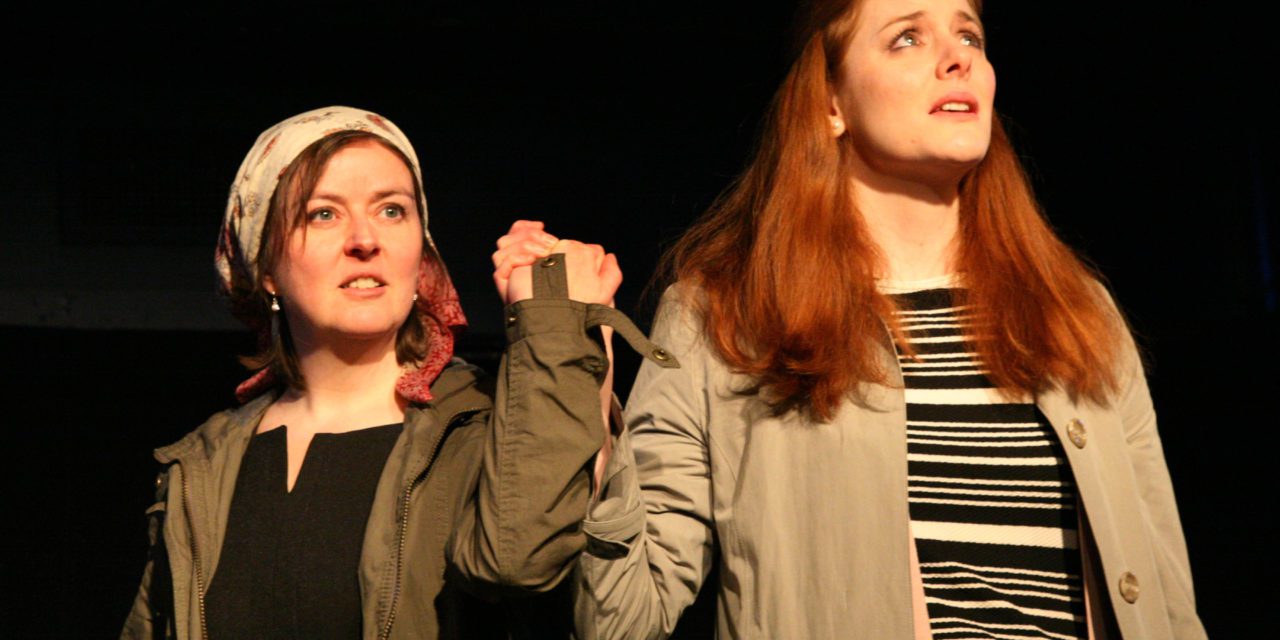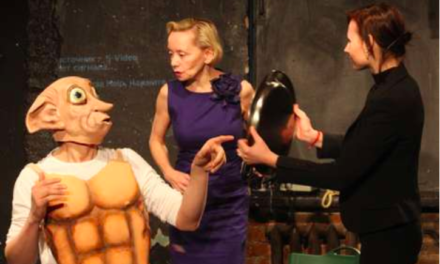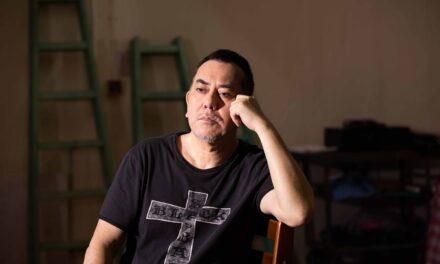This is the second installment in John Freedman’s TheaterPlus video blog, which now appears sporadically, but exclusively, on The Theatre Times.
Nicola McCartney is an Irish playwright and director based in Scotland. But by her own admission, Russia has been the site of some of the most rewarding work she has done in the last decade.
She made the first of many trips to Russia in 2004 when she was asked to share with Russian partners the techniques of the Class Act project. Class Act, McCartney explains is a “social theater project” that originated at the Traverse Theatre in Edinburgh, “a major hub of new writing in the U.K.”
Although I had heard much about McCartney and her work, and we were often in the same city at the same time, it was not until a few weeks ago that we actually met to shake hands and talk. This happy occasion occurred at a conference, “Back to the USSR? Drama and Theatre in Ukraine and Russia,” at Oxford University. And it gave me the opportunity to sit Nicola (stress the first syllable) down in front of my shaky camera and ask her to tell me about her experience with Russian drama and theater. What follows is something of an annotated digest of what she had to say. To listen to her comments without my interruptions and interpolations, click on the embedded video above.
McCartney had been working with Class Act – which we’ll explain in a minute – in Britain since 1997. But following up on an invitation from Russian translator Tatyana Oskolkova and Anna Genina, an employee at the British Council in Moscow in 2004, she set out for the unlikely city of Togliatti, in the south of Russia, where she worked to launch the first Russian Class Act project with playwrights Vadim Levanov and Vyacheslav Durnenkov.
Class Act is a program that puts playwrights in schools where they “teach kids the fundamentals of playwriting,” McCartney says. “The five-minute plays are staged by professional actors and directors.”
There are, McCartney points out, four main principles to the program.
1) To find future playwrights;
2) to develop new audiences;
3) to foster self-expression and the ability to work in groups;
4) to cultivate personal and social education and development.
In Britain, where the program was developed, Class Act has been shown to have a positive impact on literacy and social engagement among children who have participated. The Togliatti project, according to McCartney, was a “tremendous success” and it has continued to grow and change over the last decade. “There have been permutations, such as ‘klass drama,’ Russia’s own unique way of doing Class Act.”
Aside from McCartney’s testimonials, I frequently see and hear of Class Act ripples running back and forth across Russia’s vast territories. To this day Vyacheslav Durnenkov teaches classes and runs tutorials, sometimes in schools, sometimes in prisons or orphanages, but always using tools he picked up working with McCartney.
In October 2013 I was witness to a fascinating project that grew directly out of the Class Act program. In it, writers, directors, and actors engaged by Denise Rosa’s Perspektiva, an NGO in Moscow, worked for a week with physically-challenged young Russians, during which the teenage and sometimes pre-teen youths wrote plays that reflected their experiences and aspirations. For those interested in more on that, see my “Turning Lives Around with Theater,” originally written for TheaterPlus when it was published by The Moscow Times.
“It is a joy to see the way social theater has completely taken off in the last 10 years,” McCartney tells me. “I feel that in some small way I have contributed to that by sharing the methods I use.”
These days McCartney is working to bring Russian and Ukrainian writing to Scotland. With her colleagues, Alexandra Smith and Sasha Dugdale, McCartney is “putting together a triptych of plays in Russian and Ukrainian with prominent Russian and Ukrainian playwrights who have been instrumental in the Class Act programs.”
Playwrights Natalia Vorozhbyt and Mikhail Durnenkov
“In spring of 2015,” she continues, “we will produce new works by Yury Klavdiev, Mikhail Durnenkov and Natalia Vorozhbyt. They will be staged at Glasgow’s Oran Mor Theatre in the award-winning “A Play, A Pie and A Pint” season.
For the record, the plays are Take Out the Rubbish by the Ukrainian Vorozhbyt, Thoughts Spoken Out Loud from Above by Klavdiev, a native of Togliatti who now resides in St. Petersburg, and The War Hasn’t Started Yet by Durnenkov, Vyacheslav Durnenkov’s brother who also hails from Togliatti but now lives in Moscow.
“Russian plays are incredibly refreshing to me,” McCartney says. “The way they experiment with form and voice is completely unique and original. It has had a profound impact on the way I write plays myself.”
McCartney appreciates “seeing the methods that Russian writers adapt in their own work.” And she believes that this give-and-take among cultures is needed today more than ever. “It is important to keep dialogue and exchange open at this time when global relations are under such strain,” she says.
Russian culture, she points out, “is a culture that has much to teach us,” pointing specifically to artists “such as Yelena Gremina, Mikhail Ugarov and other writers writing from the heart and responding to the system in a courageous and truly inventive and ingenious way.”
“I always feel that the most inventive work I see in theater is a response to some kind of censorship,” she suggests. “Censorship stretches the creative muscle to genius levels often.”
“Not that we want censorship,” she adds quickly, “but there is a peculiar thing about social taboos and social censorship and political censorship that make an artist respond much more creatively, and think about the form much more creatively than just verisimilitude or reflecting life as it is.”
This post was written by the author in their personal capacity.The opinions expressed in this article are the author’s own and do not reflect the view of The Theatre Times, their staff or collaborators.
This post was written by John Freedman.
The views expressed here belong to the author and do not necessarily reflect our views and opinions.


















